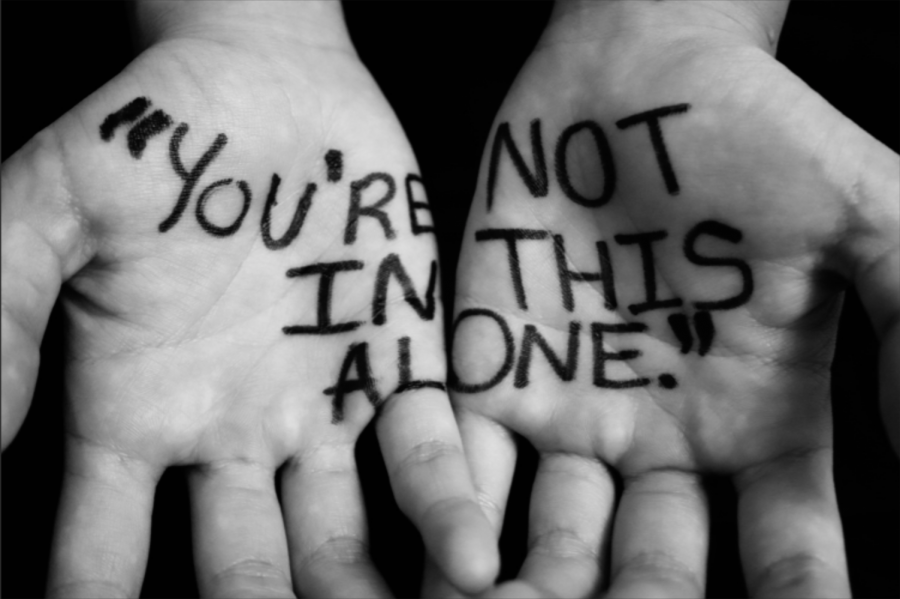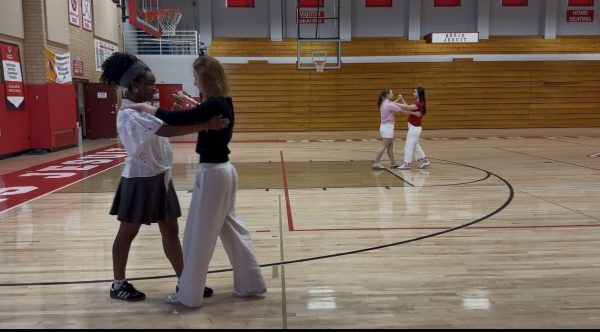Mental Health Perspectives: A Look Into the RJ Community’s Battle for Mental Health
Three point one percent of children ages three to seventeen years old are diagnosed with depression. Seven point one percent of children in this age range are diagnosed with anxiety. What about those who aren’t diagnosed who might be struggling in silence? Anyone who is going through depression or anxiety can hide it by putting a smile on their face without other people noticing, and people with mental health problems struggle to open up because it is often viewed as a choice. On the contrary, it’s not something you can choose just as your body doesn’t choose to get sick. You want to be strong yet something inside or in the environment you’re around affects you regardless.
“That’s part of the issue: it’s that people don’t realize it’s something that’s solvable, something you can get past, that it’s something you can get over, and it’s not necessarily permanent,” Jeff Hughes ‘22, a Regis Jesuit student, said.
Hughes is a great student and current leader of the automotive club. He started struggling with his mental health when he started high school. His way of looking at the world changed due to interior and exterior pressures. He started losing confidence and became a danger to himself. He felt lost, like there was too much to live up to and so much to be insecure about in today’s society with the seemingly perfect lifestyles in social media. That affects the way one views onself.
Despite all of this, Hughes tells us that there are ways to cope, process, and recover from these issues, like having a creative outlet and people he can talk to and confide in. A huge part of the process, according to Hughes, is finding the beauty in life.
“The best way to help someone get through mental illness is to help them find beauty in their own life. Not anyone else’s life, not that they have to live because mom would be sad if you’re gone. Instead, you have to live here because life is beautiful and life is deserved,” Hughes said.
COVID-19 came at the right time for Kira Cattand ‘22, a Regis Jesuit student and goalie for the Colorado Rapids and Regis Jesuit. Kira was going through a rough time pre-pandemic, so when the world shut down it gave her a chance to breathe. A time she was given to work on herself and assess things differently within her own life.
One of the biggest things that helped Cattand was therapy.
“Going to therapy has been the best thing for me because you just get to talk to a professional, talk to someone confidential, and know how to deal with those problems and guide you through life,” she said. Yet one of the main issues with mental health is access to resources, ones that go beyond Safe2Tell, whose services are more frequently used for a build-up of problems when things go really bad. There needs to be resources that prevent these culminations of problems before it’s too late. “People think that it needs to be diagnosed for it to matter, but really I think any mental problem needs attention,” Cattand said.
Mental Health problems are different for many people. It impacts a range of groups such as adults, kids, men, and women.
“Typically, men hold a lot in, and that’s not healthy,” said Kathryn Ames, a counselor who has worked eight years at Regis Jesuit. Mental Health for men is worsened by them hiding their feelings based on masculinity, and fears of looking and feeling weak. In some ways, the same can be said for women.
No group is free from any of these stigmas, but, whether innately or culturally, many women tend to process things differently than men. Skills like compartmentalization and connection can be learned from all sides and groups.
“We process things differently. I think we need to learn from both and have a balance,” Mrs. Ames said. As for adults, it’s a whole new set of problems and stress. Stress that includes bills, marriage, kids, and jobs. That can result from always being on the go. Mrs. Ames emphasized that adults sometimes feel like “I can’t slow down because I gotta make the bills and I gotta buy this fancy car versus it’s okay, take your time, focus on yourself. Because what does it matter at the end? What really matters is that you’re happy and knowing you’re enough.”
It’s important for adults to take a step back and look at what they value and how that’ll be modeled for younger generations. Is it focusing on their own well-being or is it focusing on status and money? That concept of self-care is often lost in today’s society.
Regis Jesuit High School and its loving community are in a battle for mental health. It’s not always easy to talk about; it takes immense bravery and small steps. Mental Health is different and challenging for everyone in their own way. From the Boys Division to the Girls Division, for kids and for the faculty and staff. Whether diagnosed or not, it matters. Actions and conversations are needed. Whether it be friends or family, be there, and take on those conversations because mental health matters. You matter.








